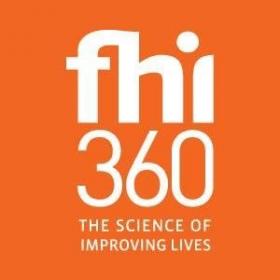The Senior Laboratory Advisor (SLA) will lead the laboratory capacity building work for the USAID Infectious Diseases Detection and Surveillance project that will serve the Global Health Security Agenda, TB programs and other related initiatives. The project will support select governments and their relevant ministries in the strengthening of their human and animal health laboratories systems for infectious diseases, including TB, and antimicrobial resistance (AMR). The work will focus primarily on public health systems but may also include private health and other non-governmental laboratories. The position will be based in Washington DC, USA but will involve frequent international travel. The SLA will have both administrative and technical responsibilities. The administrative responsibilities include managing assignments, the associated staff, logistics and budgets. The technical responsibilities include working with the project prime and USAID to develop terms of reference and providing technical oversight of laboratory assessments, capacity building and strengthening of the human and animal health laboratories; strategies for serving the broader surveillance systems; and support for point of care laboratory services. The primary responsibility of the SLA is to ensure successful implementation of the project laboratory work plan and achievement of all FHI 360 targets and deliverables for each project country while managing and remaining within the approved budget.
The SLA provides technical and scientific leadership to the design, implementation and monitoring of technical strategies, laboratory assessment and capacity building initiatives, programs or tools to support laboratory capacity building of human and animal health laboratories for the project. Specifically:
- Leads the management and oversight of technical country-based FHI 360 staff that are working on the project.
- Leads the development of technical assistance, laboratory strengthening and quality assurance/quality control materials and programs in line with Joint External Evaluation (JEE) reports and other assessment reports.
- Supports the development of country-specific workplans and budgets for laboratory activities aligned with JEE improvement goals.
- Leads the oversight, implementation and reporting of laboratory activities in country workplans.
- Responsible for the planning, conduct, and reporting of assessments of laboratories (human and animal) performing services to the project.
- In close collaboration with project staff and laboratory management lead the follow-up of needed corrective and preventive actions following audits.
- Responsible for developing and implementing continuous improvement initiatives to build laboratory capacity and quality with reference to accepted standards and requirements.
- Provide technical assistance to laboratories as part of overall capacity building and continuous improvement schemes.
- Encourage and assist laboratories with preparing for and seeking accreditation through locally, regionally, nationally, and internationally accepted accreditation agencies.
The SLA provides technical advice based upon expertise and knowledge of evidence- based methods and strategies, current practice, and established laboratory and operational standards to ensure quality and rigorous design. Builds capacity in country-level, regional or global laboratory staff. Develops and leads the implementation of strategies, workplans and quality improvement programs for laboratories supported by the projects. Assesses current technical, scientific, managerial and operational efficiencies at the program, regional, or global levels as appropriate. Provides guidance to ensure that program implementation adheres to appropriate laboratory technical standards and guidelines and that programs are technically sound. Provides scientific leadership by staying current of evolving laboratory technical standards, guidelines, and program developments in area of expertise. Responsible for sharing laboratory best practices and contribute to the knowledge base through participation in scientific forums and technical networks. Shares new knowledge/evidence and best practices with the project team, partners and host countries. Will be required to coordinate and work with a diverse group of organizations, such as; the Ministry of Health and Agriculture laboratory staff and leaders, laboratory quality organizations, several international and national development partner organizations, and the donor in order to complete work.
Problem Solving & Impact:
- Is sought out to provide advice or solutions in laboratory activities.
- Is informed about current developments in the laboratory diagnosis of infectious diseases.
- Works under broad direction with considerable latitude for independent action.
- Specific actions are guided primarily by professional standards and expected outcomes of the project.
- Decisions and actions have an impact on the smooth operation and timeframes of the project.
- Problems encountered are complex and may involve unprecedented circumstances; resolution requires investigation, analysis and review of professional/organizational standards.
- Faulty decisions or recommendations will normally result in critical delays and modifications to projects or operations, cause substantial expenditure of additional time, resources, and funds; and jeopardize future business activity.
Supervision Given/Received:
- Will supervise junior staff members in multiple countries (including in Asia and Africa).
- Work is reviewed in terms of meeting the organization’s objectives and schedules.
- Accomplishes results through managers or senior members of team.
- Manages technical area staff and function area within the organization.
- Plays a coaching and mentoring role for others; may assist in team management as necessary, although has no formal people management responsibility.
- At least eight years of experience in clinical laboratory medicine in developing countries with at least five years’ experience in a laboratory quality management role
- Proven knowledge and experience in the laboratory diagnosis of infectious diseases (including TB) and anti-microbial resistance including specific hands-on laboratory experience.
- Competent in current laboratory developments in the diagnosis of infectious diseases including point-of-care and molecular methods.
- Knowledge and experience with strengthening laboratories to achieve international quality standards including against ISO 15189 and/or SLMTA/SLIPTA.
- A demonstrated ability to work with multiple partners on collaborative projects;
- Familiarity with international biosafety regulations;
- A demonstrated ability to create and maintain effective working relations with host country governments and international organizations, (including senior government officials), and U.S. Government Agencies.
- Strong experience to manage projects, set realistic priorities, and plan for the successful implementation of activities.
Travel Requirements:
- At least 35%
